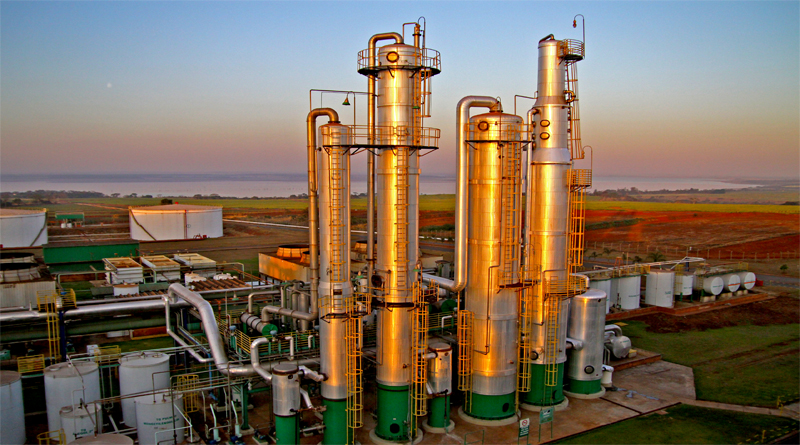

Prime Minister Narendra Modi said that India plans to triple production of ethanol to 450 crore litres under its ethanol lending program over the next four years. The move is expected to help save Rs 12,000 crore worth of costly crude oil imports.
“We will produce 450 crore litre of ethanol in next four years from existing 141 crore litre. It will result in import savings of Rs 12,000 crore,” Modi said, addressing an event to mark the World Biofuel Day.
He also said that the country was able to save Rs 4,000 crore last financial year as a result of the program. In the effort to transform biomass to biofuel, there is a plan to set up a dozen modern refineries as well. The Oil Marketing Companies (OMCs) are reportedly spending Rs 10,000 crore to build 12 second-generation ethanol plants.
Ethanol production has come under a bit of a cloud in recent years, mainly due to the resources it consumes in turn to produce ethanol. The most efficient processes typically consume 3 litres of water for every litre of ethanol produced. In a country that is increasingly water stressed, this has the potential to create severe challenges in India, according to its critics. Especially with production being undertaken by the existing set of oil marketing firms, which have a poor record of adapting the latest technologies in time, be it for unleaded petrol, low sulphur diesel and more. Every move has been pushed by the judiciary or under compulsion, and even the Ethanol plan is already behind schedule, as it is.
A final challenge to Ethanol might be the fact that most of the production is supposed to come via the sugarcane route in India, by utilising the molasses generated in sugar production. Thus, sugar, a heavily politicised commodity itself, will ensure that money does get sent the way of ethanol facilities to improve the viability of sugar mills, but with cane production itself in some sort of distress due to the water issue, the future is anything but smooth.
Mr Modi also added that the government is trying to achieve ethanol blending ratio of 10 per cent by 2020 and 20 per cent by 2030. “The new biofuel policy will help farmers increase their income. The use of bio-fuel is the bridge between economic development and environment protection,” the PM said.
India is currently the third highest importer of crude and with uncertain geopolitical conditions between Iran, US and China; the crude imports, in recent times, has constantly seen price hikes and supply constraints. As crude is hitting $80 per barrel, the imports bill will shave $50 billion from India’s foreign reserves. With dependence on Crude imports rising since 2014, Indian government forecasts that in three-year time, the crude oil imports will cross $100-Billion mark. Hence the compulsion on biofuels. PM Modi aims to cut down country’s oil import bill by Rs 120 billion ($1.74 billion) through increased use of biofuels.
He further added the government is already in the process of setting up 700 biomass plants for energy generation under the Gobar Dhan Scheme. The PM also launched a web portal ‘Parivesh’ for quicker clearance of environment projects.
In a key step toward advancing clean energy adoption, Ahmedabad headquartered IRM Energy Ltd has…
Biofuels conglomerate Aemetis has announced that its subsidiary in India – Universal Biofuels – has…
The Greater Noida Industrial Development Authority (GNIDA) has commenced construction of a 300-tonne-per-day (TPD) bio-CNG…
The World Earth Day – with this year’s theme on ‘Our Power, Our Planet’ –…
In a significant step toward promoting decentralized waste management and clean energy, Tata Steel UISL…
Jaipur headquartered bioenergy player Rajputana Biodiesel Ltd has announced that its subsidiary, Nirvaanraj Energy Private…